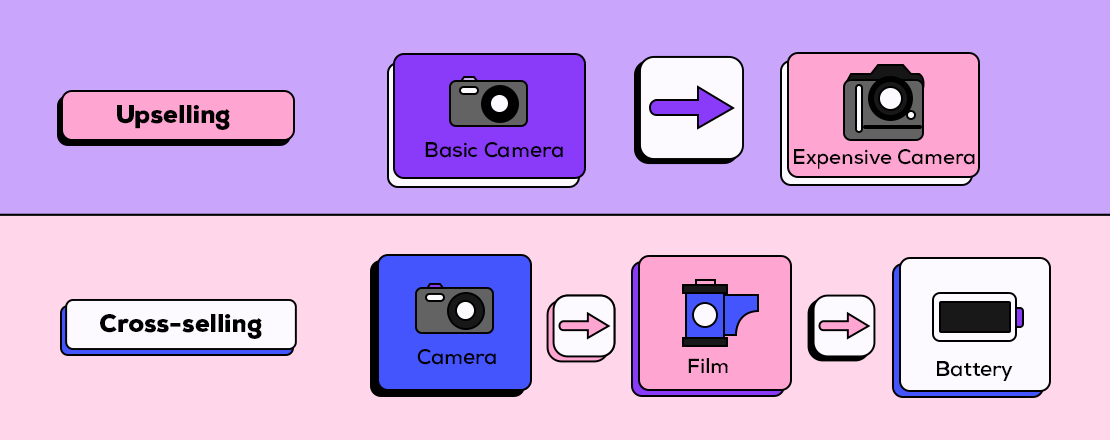FinTech leader, Suraj Nagaraj talks about the all-pervasive and ever-growing FinTech landscape, and its impact on the post-Covid world.

With over 17 years of experience, Suraj has built his career by exploring payments and FinTech businesses through transformational growth and change. A leader in the industry, Suraj has expertise in product management, bringing innovative products to life, and fostering unparalleled customer experiences.
Now Senior Product Leader at Borough Box, Suraj, spoke with Skeps on the state of the FinTech industry, its importance in the post-COVID world, and how it can help the world adapt in the current situation.
What was the FinTech sector like before the COVID-19 crisis?
In absolute terms, I would have expected the situation to be different because of the pandemic causing havoc, however not surprised to draw a fair conclusion that the sector was already going through some challenges for early-stage ventures in the space. The lack of clarity in business models and overlapping value propositions had made it difficult for investors to identify profitable businesses to invest in. For late-stage organizations across the different parts of the landscape, such as Insurtech & Proptech, to name a few, seemed to be bullish during the later part of 2019 going into Q1 2020.
What is the state of FinTech in a post-COVID world? What is the impact of COVID-19 on this sector?
The COVID-19 pandemic can be positioned as a disruptor of the disruptors. It is a short-lived problem that has enabled the acceleration of digital transformation across many industries. Yes, the sectors such as travel, leisure, and hospitality are operating in crisis mode, but it can only be seen as an opportunity for structuring more sustainable product offerings. The concept of sharing the pie has started to go out of vogue. The short-term effects will look more disastrous in some pandemic limiting areas where businesses such as the bed and breakfasts, holiday retreats, cinema halls, and restaurants will have to find new ways of engaging with customers. The long terms effects, however, must rely on modified consumer behavior where a large percentage of them have adopted online methods mostly. Broadly classifying this, e-commerce is on the up and goes without explanation – auto insurance or online auto insurance will be on the down-low, and surprisingly traditional investments into life insurance will likely be on the rise for obvious reasons. Similarly, the cash-rich banks will remain sustainable and ride the wave a lot more smoothly than the challenger banks who tend to generate revenue mostly from debit swipes.
How has the COVID-19 crisis increased the need for digital lending platforms and platforms offering POS financing?
Digital lending is definitely going to see some uptick and will mostly benefit organizations that are hard hit because of the pandemic in the short term. In the long run, it will become a thing of the day to adapt to trending consumer behavior, as mentioned previously. My personal experience with HDFC Bank in India, for example, is quite pleasing and shocking at the same time as I was able to apply for loans online using email communications and other media so, the approval came through in a short span of time. The disappointment struck when it came down to disbursement of the funds itself, where I had to send all the physical forms out by post along with legally attested KYC forms, which made things complicated. There will surely be a drive to digitally disrupt this space and adopt speedier mechanisms to capture leads along the way. As far as POS goes, I am quite undecided about how this space will change the leverage for POS solutions to lock in customers will be simple things like 0 percent interest payments over a set time period or buy not pay later schemes and the likes. All of this obviously relies on regulations, risk profiling, and more complex user journeys. Will the numerous payment solution providers invest in the space, or will they go for third-party integrations to let go of some of their profit margins; I cannot say for sure?
How is the FinTech industry adapting to the needs of current borrowers?
If we look deeper into the lending space, a large set of customer requests tend to be for relief funds, small business loans, or more ground level reality problems like payroll protection. The challenge will come down to meeting the transaction volume to keep existing customers happy. Cash strapped FinTechs will not like the sound of an unhappy customer leaving because their imminent problems were not catered to. There are other forms of lending, such as insurance, where the underwriting mechanisms have been tightened with more attention being paid to the risk profile of borrowers. The positive side of things, however, looks quite promising where some longer-term players such as Paypal, Square, and Stripe have provided fee waivers, reduction in subscription fees for short term success, free onboarding, and payroll processing, to name a few in order to retain customers and witness growth.
How are they planning to serve the needs of future borrowers?
Future borrowers are definitely going to be risk-averse, so the customer experience is going to play a vital role in pushing that customer over the edge. The digital experience will begin to define everything, in my opinion. The more digitally savvy you are as an organization, the easier it will get to generate leads and see positive churn in the business. To avoid existential crises, organizations are looking at partnering with solutions and capabilities that are outside of pure lending only in order to cater to that end to end one-stop-shop customer need. Take the example of challenger bank Revolut, I was one of their first batch of invite-only customers, and now I have moved on to using their investment platform. It has transformed my life in a meaningful way so, I can do quite a few things all in one place and all on my mobile. I am now planning to move my business banking to Revolut as well. I think this will become the trend and it’s here to stay for a long time.
Please share in brief about the industries and technologies that will shape the post-virus world.
- E-commerce is definitely a big winner.
- Payroll protection and in general payroll processing experience for contract workers or daily wage earners.
- Robo advisors and IoT capabilities for insurance and investment purposes in general.
- Real estate and customer borrowing are for sure going to see a decline, or rather consolidate in the long run.
How Skeps as a FinTech startup can make an impact in the post-COVID world?
The Skeps value proposition resonates with every retailer, big and small. As someone operating in the e-commerce/fintech space, I think it is a great way to make the borrowing experience a lot more personal. The concept of “Loans for everyone” is appropriate in this day and age where personalization is the key. The ability to make the entire process leaner and a one-stop-shop is a great way to empower borrowers with timely support. On the lender front, the platform amplifies the effect by helping digitally savvy lenders reach out to end customers who may not be as enabled. So, the ecosystem is deeply woven into the system not just for providing loans but to be an equally accountable part of the ecosystem and stay through that cycle of growth.
Disclaimer: Opinions expressed are solely the interviewee’s and do not imply the views or opinions of his employer.















